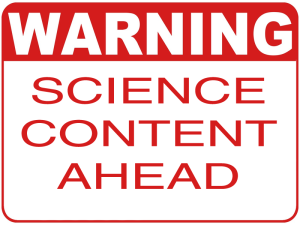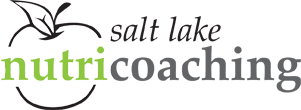When you hear the word soy, what’s the first thing you think of? I love all types of Asian cuisine, especially Japanese, so my first thought is sushi! A little soy sauce with a nice piece of sushi makes for some very good umami.
Unfortunately, soy has a bit of a bad reputation in some quarters…especially on the internet. In fact, some people claim soy is outright bad for you.
But is there any truth to that? Is soy the murderer lurking in your kitchen? (No, I am not being melodramatic, the claims get that drastic.) Let’s find out in the latest edition of our Food Mythbusting series.
Food Myth #3: Soy causes breast cancer, can lower sperm count in men, can cause thyroid disturbances, and can cause memory problems.
Background: There are many types of soy products, and many of the claims are based on a specific component of soy, so let’s start by learning a bit more about it.
Soy products come from soybeans, which are classified as a legume. (Peanuts and lentils are also examples of legumes.) Soybeans are toxic to humans if consumed raw because they contain a substance called trypsin inhibitors. In order to eat them, they first need to be cooked with some type of a moist-heat cooking method, which destroys the trypsin inhibitors.
Soy products typically are classified as either fermented or non-fermented. Some examples of non-fermented soy products are soy milk, tofu, and soy protein powders. Fermented soy products include, but are not limited to, soy sauce, fermented bean paste (miso), natto (a traditional Japanese food), and tempeh.
Fermentation uses microorganisms to produce or change a chemical product. In this case, it’s used to breakdown some of the complex compounds found in soybeans. I would like to elaborate a bit more on some of these compounds because many of them are at the heart of the health claims involving soy.
 This next part gets a bit technical, so if you are interested in the science behind it all, you will likely enjoy the next section. However, if you’d rather just get to the gist of it, feel free to skip to the Summary section.
This next part gets a bit technical, so if you are interested in the science behind it all, you will likely enjoy the next section. However, if you’d rather just get to the gist of it, feel free to skip to the Summary section.
The Inner Workings of Soy
Soy contains several complex compounds, including:
- Phytic Acid (inositol): This is the principle storage form of Phosphorous. It is considered an anti-nutrient because it can chelate and bind several important minerals and prevent them from being absorbed. Fortunately, cooking, soaking, and fermenting breaks the acid down. There is a theory that endogenous lactobacilli (a type of bacteria typically found in the guts of humans) may be enough to neutralize the acid’s effects[1].
- Isoflavones are substances that act as phytoestrogens in mammals. Phytoestrogens are chemical substances that can act like estrogen, or sometimes have anti-estrogenic effects in the body. Some Isoflavones are considered anti-oxidants[2], which can prevent cancer. Several studies have shown that these can decrease the risk of breast cancer, but only in Asian populations[3]. Other studies in mice have found they can cause abnormalities in the thymic and immune systems[4]. There is also a concern that one of the isoflavones found in soy may contribute to the development of goiters, particularly in those with inadequate Iodine intake[5].
- Oxalic Acid is an organic compound which can combine with calcium to form calcium oxalate—a known component of kidney stones.
There are some other components of soybeans that are important but not altered by the fermentation process. Alpha-Linoleic Acid (ALA) is an omega 3 fatty acid that is essential for our bodies. Omega 3 fats are considered to be anti-inflammatory. Omega 6 fats are also essential to our bodies. High consumption of omega 6 fats has been linked with several illness[6]. The recommended ratio of omega 3 to Omega 6 is about 1:1, however the American diet tends to be closer to a ratio of 1:16[7]. The ratio of these fats in soybean oil is 1:7. Overall, the fat composition of non-hydrogenated soybean oil is quite healthy.
Soybeans are also high in purines (yet another chemical compound), which people with gout may be sensitive to.
Whew! That was a lot of information, and probably more chemistry than you ever wanted to know. But what does it all mean when it comes to your health?
The Facts
According to a study published in the Journal of Nutrition, soy formulas are considered safe[8].
And according to the American Cancer Society “studies in humans have not shown harm from eating soy foods.[9]” Studies have also not shown soy to have demonstrable effects on testosterone levels or sperm count in men[10].
An Indonesian study found consumption of tofu was associated with worse memory, but tempeh was actually associated with better memory[11]
Overall, moderate consumption of non-processed soy products are generally deemed safe[12]. (I love that this fits in perfectly with my “moderation in all things” motto.)
Here’s the fact of the matter: consuming soy brings some undoubted health benefits. But there are also some aspects of soy to be cautious of, and some soy products should probably be avoided altogether. I will summarize them below.
Benefits
- Raw soybeans are full of vitamins, minerals, fiber, and protein.
- They contain healthy fats, and some studies have shown that soy can positively affect cholesterol levels.
- Soy is generally considered a complete source of protein, which is especially important for vegetarians and vegans, who can’t get protein from meat like others do.
- There is some evidence that soy decreases the risk for breast and prostate cancers[13].
Cautions
- People with soy allergies should avoid consuming soy (obviously)
- Those with thyroid problems taking medication should avoid soy within several hours of taking their medication and may want to limit consumption to no more than 30 mg/day, especially of unfermented soy. This is because of the Isoflavones mentioned earlier.
- Those with inadequate Iodine intake may want to avoid soy as well. (However, an even better solution would be to correct the low iodine levels. Iodine deficiency in the United States is rather rare due to the iodization of salt).
- Some people suffering from gout that have found themselves to be sensitive to soy because it contains purines. However, not all people with gout find a low purine diet beneficial.
Soy products to avoid
- Hydrogenated soybean oils contain trans-fat. There is absolutely nothing good about trans-fat, making this a product to stay away from.
- Soy supplements—soy isoflavone supplements and soy protein powders with isoflavones in it are not recommended or considered safe.
Verdict: Busted
Summary
While high consumption of processed or non-fermented soy products is likely not a good idea, neither is the excessive consumption of most any other food. (If there’s one thing I hope this Mythbusting series has taught you, it’s that excess is the real enemy of healthy eating.)
The fermentation of soy actually improves the amount of nutrients you can get from it. Fermentation also breaks down some of the potentially harmful compounds naturally found in soy. There is not enough solid research to say that soy truly causes cancer, or most of the other health risks the internet tries to claim. For that reason, this myth is busted. Soy is almost always a good thing in your diet…especially fermented soy eaten in moderation.
However, if you are concerned about soy in your diet, or are trying to follow a vegan diet and want to know how to get protein from other sources, I would be happy to help you.
I can confidently say though, that soy it is not a murderer lurking in your kitchen.
With that said, anyone want to get some sushi with me? Seriously, I really feel like sushi now.
[1] https://en.wikipedia.org/wiki/Phytic_acid
[2] http://pubs.acs.org/doi/abs/10.1021/jf048552e
[3] http://link.springer.com/article/10.1007%2Fs10549-010-1270-8
[4] http://www.pnas.org/content/99/11/7616.full
[5] http://www.ncbi.nlm.nih.gov/pmc/articles/PMC1241182/
[6] https://books.google.com/books?id=_0PWAie_YIkC&pg=PA1#v=onepage&q&f=false
[7] http://www.nutrasource.ca/files/omega_3_chronic_nov2006.pdf
[8] http://jn.nutrition.org/content/134/5/1220S.long
[9] http://www.todaysdietitian.com/newarchives/040113p30.shtml
[10] https://www.ncbi.nlm.nih.gov/pubmed/19524224
[11] https://www.ncbi.nlm.nih.gov/pubmed/18583909
[12] http://www.todaysdietitian.com/newarchives/040113p30.shtml
[13] http://ajcn.nutrition.org/content/89/4/1155.long
http://jnci.oxfordjournals.org/content/93/14/1088
